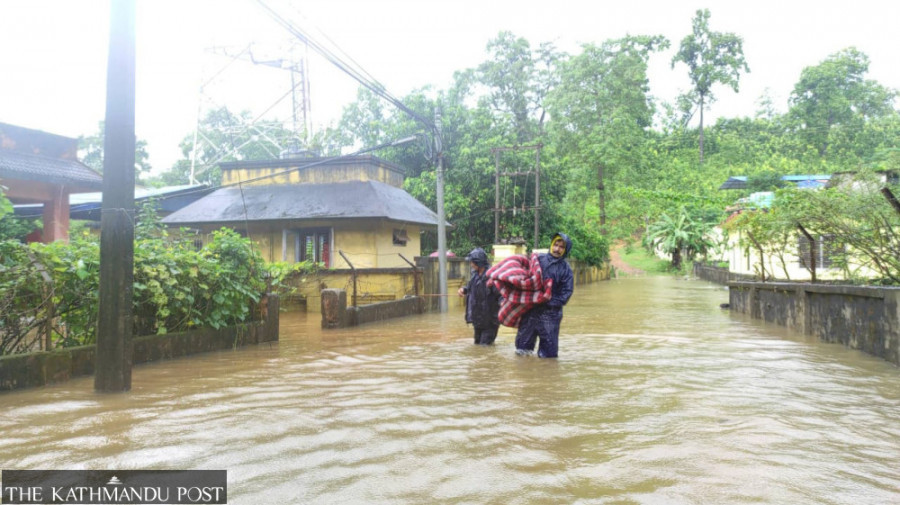Editorial
Action not words
It falls on Nepal to constantly remind the rich world of their climate responsibilities.
Dashain weather is usually associated with crisp mornings, bright days and blue skies, but this year it was anything but cheerful. Rain, unfortunately, played spoilsport by disrupting travel plans for the hundreds of thousands leaving Kathmandu Valley for their hometowns, and landslides triggered by incessant downpours primarily caused this disruption. What is frightening is that we are now witnessing unseasonal weather conditions, which are causing immense hardship for the people due to their unpredictability. The past few years have been a constant battle, from the Covid-19 pandemic to the dengue epidemic, and the devastating effects of climate change on land, vital infrastructure, food security, livelihood and the economy at large.
Most of us are aware of climate change and its impacts, and yet we seem to think that the associated problems will go away on their own. Numerous conferences are hosted every year to ensure that something is done to save the planet, yet they mostly don’t result in tangible outcomes. Moral arguments to tackling the menace of climate change fall flat in the face of economic development and national self-interest. The actions of the developed nations have indeed fallen short of promises for drastic measures to cut their emissions.
Nothing meaningful on climate change will be achieved so long as profit remains the primary focus. The changing weather patterns aren’t just about deluges and droughts. They can displace people by ripping up their livelihoods in an instant, leading to mass unemployment and poverty. Over the past few years, the erratic weather has wiped out food sources and is threatening global food security. Last year’s October rain which damaged ripened paddy could be a recurring feature.
While development and climate change are closely linked, the onus is on the developed nations to shoulder most of the responsibility for the global warming that is causing drastic changes in the climate. The rich countries failing to live up to the promises they constantly reiterate is nothing but hypocrisy. The demand for funds by the poorer nations isn’t a ploy to defraud the wealthier ones. It is a legitimate demand for money to deal with the hazards of climate change chiefly borne of the irresponsible actions of rich nations; after all, rich countries account for just 12 percent of the world population and yet they are responsible for 50 percent of all greenhouse gases.
And it is not just the industrialised West that is to be blamed. Sandwiched in the middle of two economic powerhouses, India and China, Nepal will undoubtedly have to bear the brunt of their unthoughtful actions as they continue to prioritise economy over ecology. Therefore, it falls on our government to constantly remind the world, particularly the rich half, of their responsibility and obligations, while at the same time devising policies and proactively taking steps to deal with the threats posed by climate change. Disrupted Dashain plans of its citizens will be among lesser of the worries for the country if the impacts of climate change continue to worsen.




 9.7°C Kathmandu
9.7°C Kathmandu














